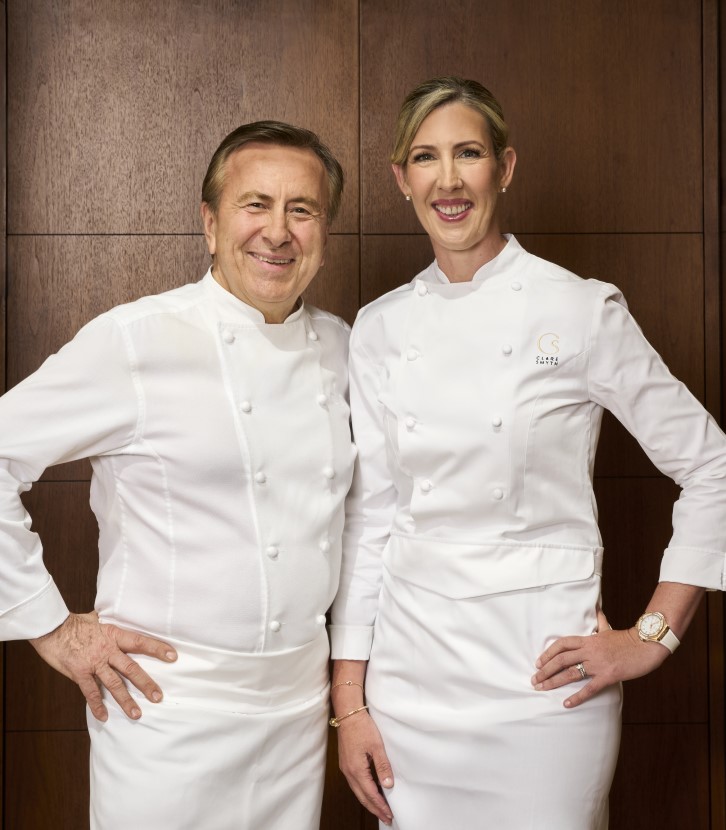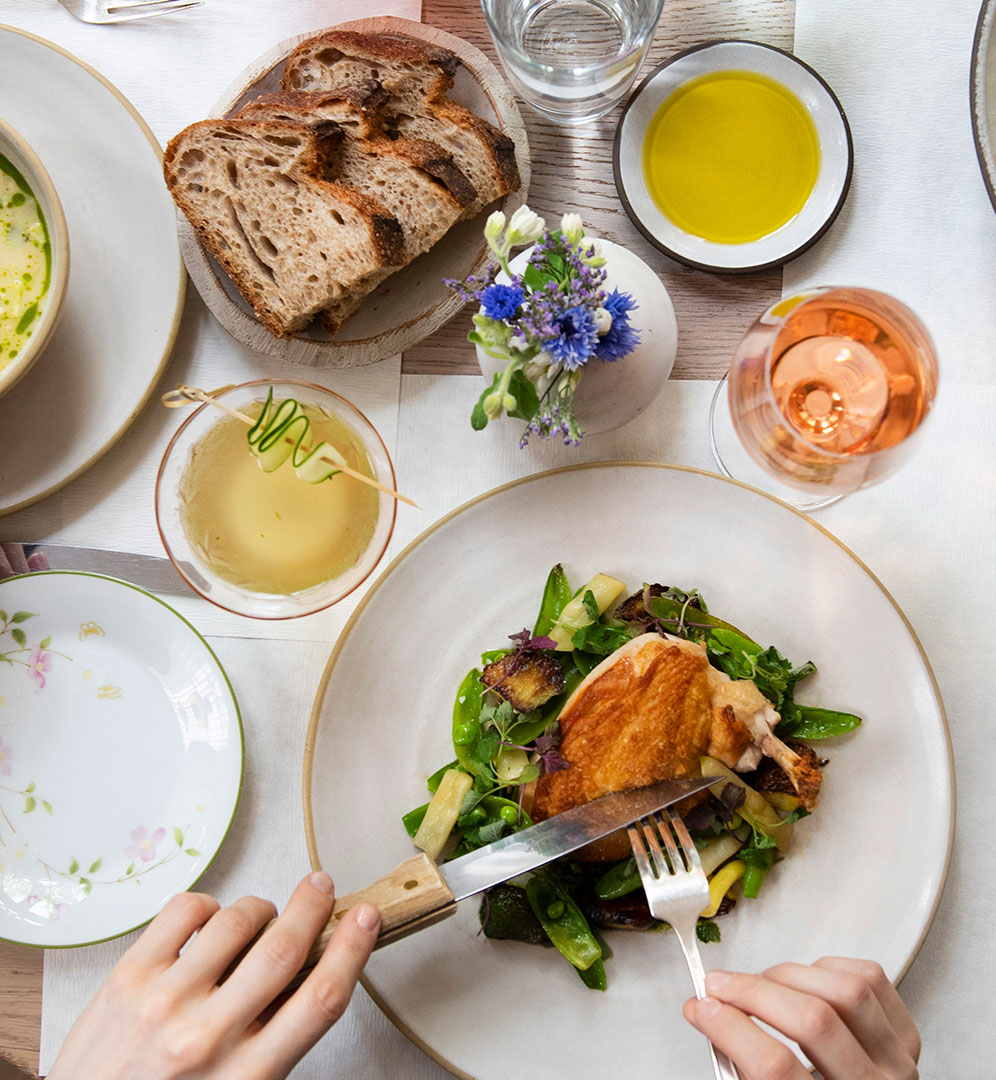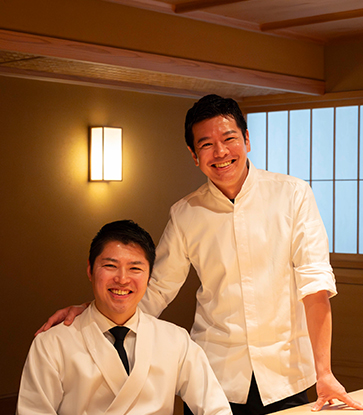Arab food is not monolithic. Within the Middle East there are differences in how dishes are prepared country by country that range from the most commonly used meats to how hummus is garnished. What most Arab food has in common, however, is massive portions perfect for gatherings of large groups.
Bountiful mezze, heaping piles of pita, and spreads of grilled meats and rice with vermicelli are no better displayed than during Ramadan, the holy month of fasting for Muslims. After fasting from dawn to sunset, the fast is broken with a nightly feast called an iftar. These seven restaurants on the East Coast are perfect for an iftar during Ramadan, but also for any time of the year — especially if you’re dining with a big family or a bunch of friends.
Washington D.C.
Local ingredients and Middle East tradition come together in Chef/owner’s Michael Rafidi’s One MICHELIN Star restaurant in DC’s Navy Yard. The menu takes full advantage of its wood-fired hearth, blanketing vegetables and meat alike in rich smokiness. Albi’s wine program is as impressive as its menu. William Simons, Director of Operations and Wine Director, says, “We keep pace with what the producers are working on largely through DMs and social media. We've taken R&D trips to the region to meet with them and explore the places and conditions and local cuisine to deepen both our understanding of the place and its people as well as our relationships with them.” What results is rarely seen wines from Lebanon and Palestine that reflect the regions’ history as well as more modern wine movements. A wine pairing is available with their tasting menu, dubbed “Sofra” which translates to “a table set for you.”

The focal point of Maydān is its massive hearth, which churns out pita to crowds of diners seated on two levels. A prix-fixe showcases Levantine fare like hummus and muhammara alongside inventive dishes featuring classic Middle Eastern ingredients, such as dates soaked in wildflower honey and dusted with Maldon sea salt. Several dishes, including the halloumi and chicken shish taouk, are roasted in the hearth. Arab music plays throughout and is pumped into the restrooms, further transporting guests thousands of miles away.

The casual concept restaurant YELLOW is by Michael Rafadi, the chef and owner of One MICHELIN Star Albi (also on this list). Across multiple locations in DC, YELLOW serves an array of Levantine food that comprises baked goods, mezze, and wood-fired pita sandwiches. The baked goods playfully reinvent staples like baklava in the form of a croissant, which also comes made with za’taar and labne for those who perfect a savory breakfast. The wood-fired pita sandwiches are made with the classics: chicken shawarma, falafel, or lamb. And for the vegetarians, there’s a barbequed harissa cauliflower pita. Those who save room for dessert are rewarded with soft serve and affogato – again with Middle Eastern flavors like labne and Turkish coffee. Most items can be taken to go, perfect for bringing to a dinner or cocktail party.

New York
The sister restaurant to Ayat (below) brings Palestinian food to a neighborhood that’s been home to Arabs for decades. Located on Atlantic Avenue, Al Badawi is a boisterous Palestinian restaurant easily spotted from the street thanks to its faux-flower-covered facade. Among its generously portioned dishes, its mezze filistini is among the most rewarding – a greatest hits of appetizers such as excellent baba ganoush and hummus. Entrees include traditional Palestinian dishes like fattat lahma and maklouba, both of which include layers of meat, vegetables, perfectly cooked rice, and other ingredients. A large oven at the front of the restaurant produces Middle Eastern flatbreads topped with pistachio, za’taar, and more. It’s not uncommon to see tables of large families next to big groups celebrating birthdays – the latter delighting in the fact that the restaurant is BYOB.

The first restaurant from Abdul Elenani and Ayat Masoud to bring Palestinian street food to Brooklyn has been so popular since its opening that the owners opened a second location - Al Badawi (above). The Bay Ridge restaurant is smaller than its counterpart, but the portions are just as big with familiar dishes like shawarma joining more traditional entrees such as mansaf.

Located in Bay Ridge, Tanoreen has been serving Palestinian food for two and a half decades. Originally founded as a small restaurant and storefront by Rawia Bishara, Tanoreen has since expanded its physical footprint and leadership team: Chef Rawia now runs the restaurant with her daughter, Jumana Bishara. Family is reflected in each of the recipes, many of which were inspired by Chef Rawia’s mother. “The way you eat here is the way you'd eat in my grandmother or mother's house,” says Jumana. She adds, “Since our food is family style, sharing is the ideal way to try many different dishes and still leave room for dessert.” When it comes to dessert, Tanoreen’s knafeh – a rich dessert topped with shredded filo dough, filled with a sweet cheese, and soaked in rosewater-flavored simple syrup – is a must.

Chef/owner Melanie Shurka traveled to Israel to learn the art of making kubeh (dumplings) from the immigrant women of Kurdish, Iranian and Syrian descent. Taste the results of her education in this lovely contemporary respite, where old-world heirlooms grace the walls.

Hero image: Scott Suchman / Yellow

















